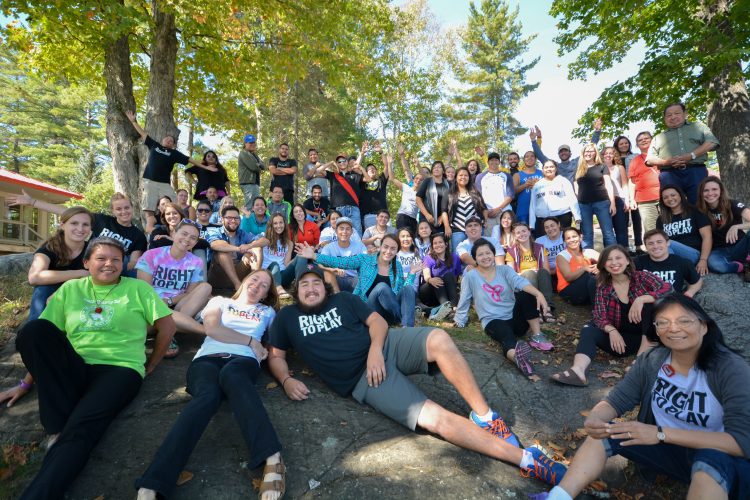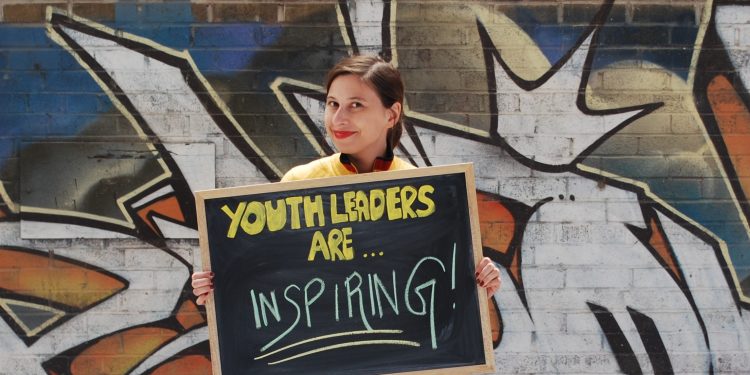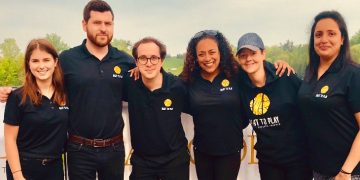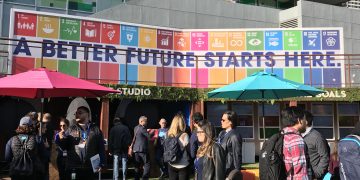How to volunteer your way to a career switch: Q&A with Rose Lipton, Director of Canada Programs, Right To Play
Rose Lipton had always wanted to be a teacher, but when she started teaching she found herself frustrated by the systemic challenges of the public school system and made the difficult decision to switch career paths. Taking a more active role on a community level, Rose started volunteering. Rose’s story shows us the power of volunteering and the opportunity it allows to prove yourself, as she successfully turned a volunteer role into a career with Right To Play. Rose is now leading all of Right To Play’s Canadian programs from their inner city youth mentorship programs to their life-skills programs in Aboriginal communities across the country. Learn more about her role and how she did it.
When did you know you wanted to work in social impact?
I’ve been passionate about equity and social justice for as long as I can remember. When I was 8, I got eliminated from the school spelling bee for spelling “womyn” with a “y” and led a protest about it. I volunteered with newcomer youth, organized seniors events and showed up to help out at every municipal election in my hometown. I was a total nerd (I still am).
How did you get your current job and how did your previous work / life experience prepare you for a career in social impact?
My education and research interests were always focused on public policy, equity studies and education and I had always wanted to go into teaching. However, when I began my career in public education, I found myself frustrated by the systemic barriers to success so many students faced. So I made the tough decision to switch career paths. I started engaging more at the community level, leading free equity trainings for teachers, writing inclusive curriculum for the Toronto District School Board, providing literacy support for newcomer youth and, ultimately, taking an unpaid internship at an organization that I knew just by it’s name would be a great fit for me– Right To Play.
What do you do at Right To Play?
I am the Director of Canadian Programs at Right To Play which means that I oversee all programming run domestically here in Canada – the Promoting Life-skills in Aboriginal Youth (PLAY) Program which operates in partnership with First Nations communities nation-wide and the Youth To Youth (Y2Y) Program which runs in partnership with model schools in the city of Toronto.

I make sure our programs are high quality and community-driven, that the youth, teachers and youth workers we support feel safe and supported at all times, that we have strong partnerships with organizations, communities and governments and that our staff team feels valued and motivated every single day.
Tell us about a project/initiative/issue you are leading, how you came up with it and why is this cause important to you.
One of the most exciting projects my team is working on right now is a mental health and coping skills resource funded by the Slaight Family Foundation to support young people facing difficult circumstances in their lives. Too often, I think kids lack that ability to identify what they’re feeling, let alone identify strategies to manage their emotions. So I am really excited to see how Right To Play can use what we do best – play – to help support young people to better understand themselves and others when they’re struggling the most.
What skills and resources do your rely on most for your job?
I’ve always been a good communicator – able to synthesize information easily and tailor it to different audiences – but since moving into a leadership role, I’ve had to really work on knowing when to talk and when to listen. Whether I’m supporting my team or working with communities my job is to listen first, hear what is being shared –strengths, challenges, goals, barriers – and then advocate and amplify that message as best I can. If along the way I can provide some inspiration and insight, then I think I’ve done my job.
What advice do you have for people interested in having a job like yours one day?
If you’re looking to get into the sector I’d say don’t be afraid to ask for help. Chatting with people who understand the landscape and can help you tailor your resume or guide you down the right path will definitely help you in the long run. The flipside of that is to always pay it forward. I am endlessly grateful to the mentors (you know who you are) who helped me out so much when I was just starting out, and because of that I am always willing to get a coffee and share advice with anyone who’s excited about pursuing their own passions.
What are you reading or following that has expanded your understanding of the nonprofit/impact sector?
My mom just gave me a book called Impact by Al Etmanksi because I’m obsessed with social innovation and collective impact right now. I haven’t read it yet but I can’t wait to start it. Another book that really guided some of my early thinking in the field of community and international development was Dislocating Cultures by Uma Narayan. That book will make you question everything you ever thought about development in the best possible way.





No Comment